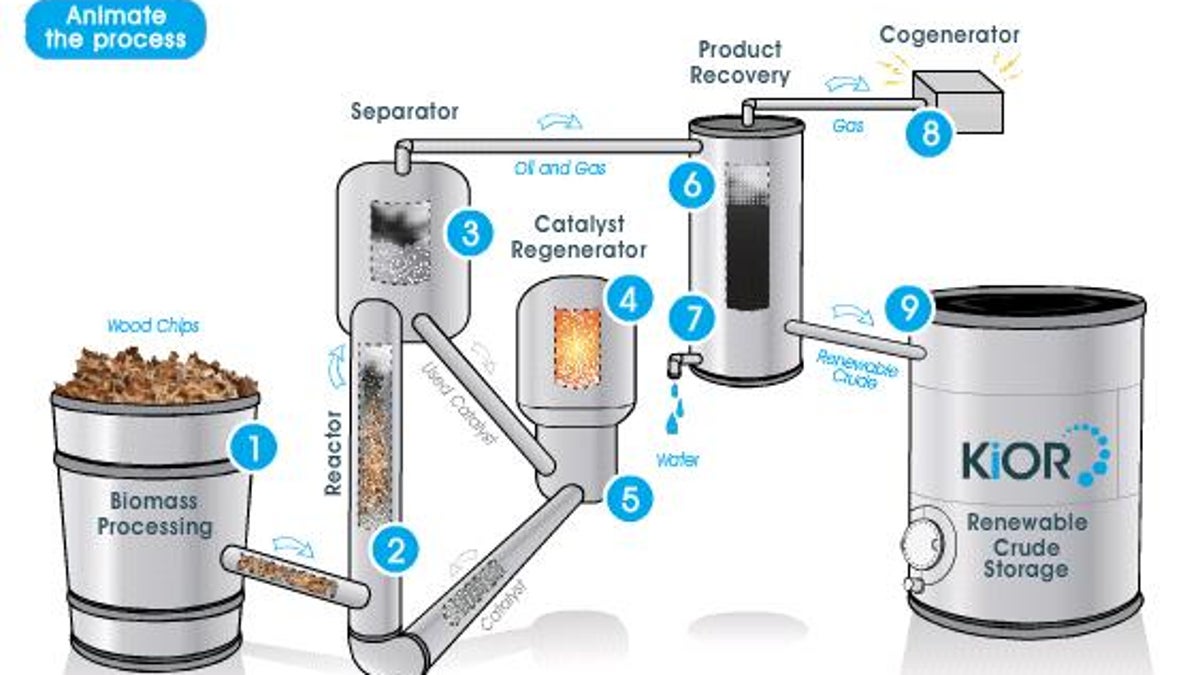DOE readies giant wood-to-fuel loan guarantee
Kior said it has a term sheet for a $1 billion loan guarantee from the DOE to build four plants that will convert wood chips into a gasoline substitute.
Biofuel company Kior said yesterday it has it is close to securing a $1 billion loan guarantee from the Department of Energy to build plants to make fuels from wood.
Pasadena, Texas-based Kior said that it has a term sheet with the DOE for the loan guarantee to build four biorefineries in Mississippi, Georgia, and Texas. The plan envisions making 250 million gallons of biofuels a year.
Rather than ethanol, Kior's process converts wood chips and similar materials into replacements for gasoline or diesel fuel. It uses a catalyst and a technique called fluid catalytic cracking borrowed from oil refining. It reduces greenhouse gas emissions by 70 percent compared to fossil-derived fuels, Kior CEO Fred Cannon said in a statement.
The company landed a $75 million loan last year from of Mississippi to build two plants in the state. The DOE loan guarantee would allow it to scale up faster and build two more plants, Mississippi governor W. Haley Barbour said. The loan guarantee, which would be the largest for a biofuels plant, means that the government will cover a borrower's debts in the case of a default.
Investor Vinod Khosla said that the plants will create jobs in rural areas, particularly people who used to work at mills.
Although the deal is not yet final, the news is bright spot in the biofuels industry which has been overshadowed by discussion over electric vehicles as a way to pollute less and cut oil use.
A number of companies continue to work on biofuels from non-food sources. But progress on making ethanol from wood or agriculture residue has lagged behind expectations, missing the government mandate set in 2007.


